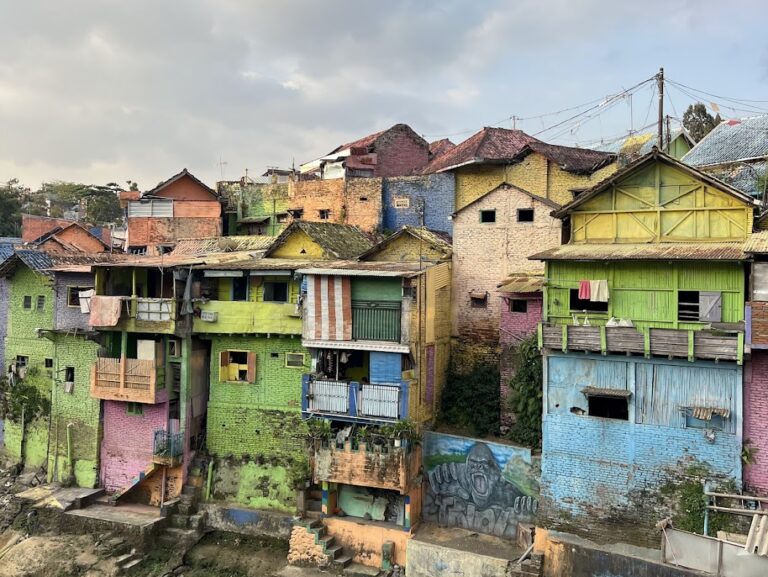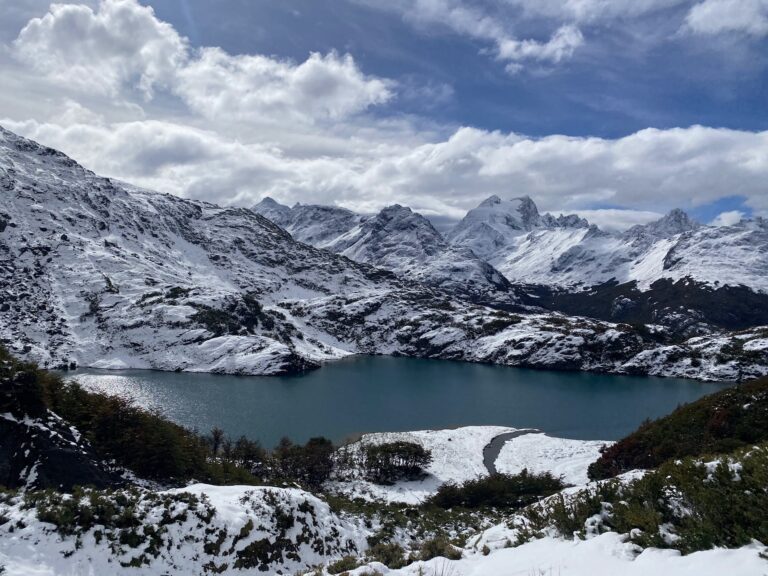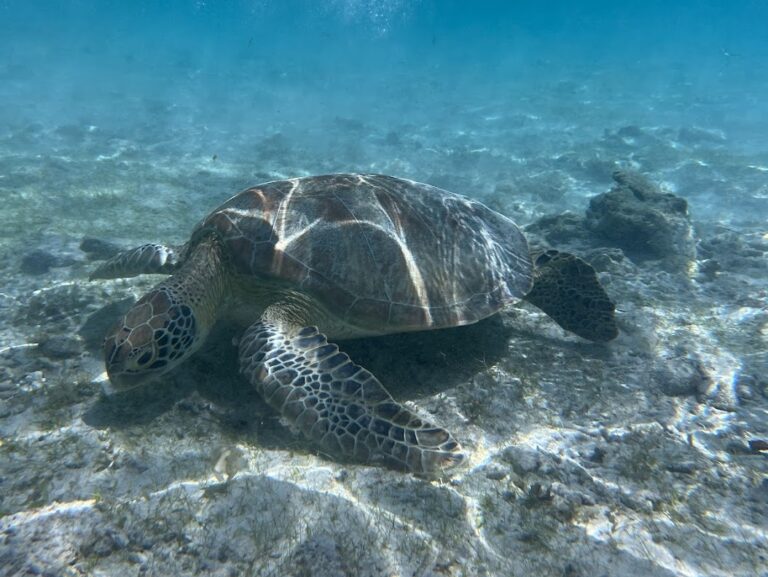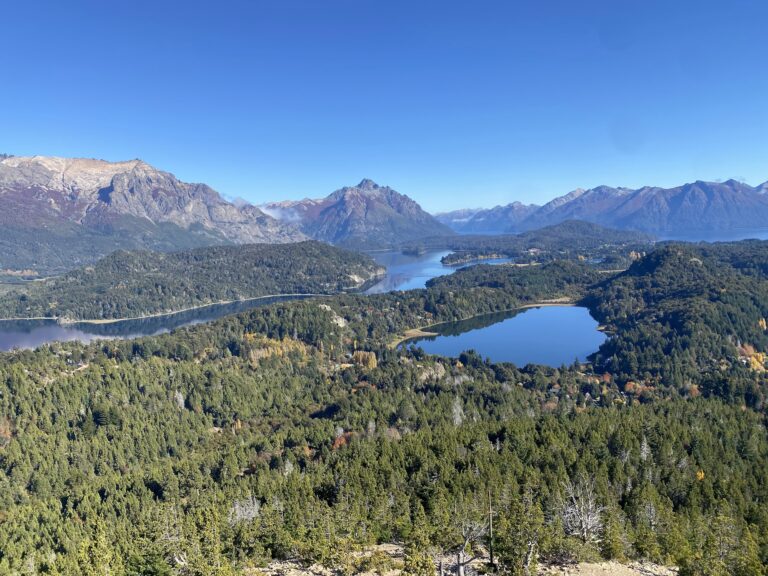I Found out How to Visit Mount Bromo Without a Guide
Mount Bromo is one of Indonesia’s most famous volcanoes, and for good reason. Its smoky crater, surreal ash plains, and cinematic sunrises draw thousands of visitors daily. But most people experience it on a rushed, crowded, overpriced tour. What they don’t realize is that Bromo is even better when you explore it on your own. It’s not just about saving money—going without a guide means you get to avoid the tourist hordes, explore at your own pace, and enjoy the magic of this place in peace.
Planning a trip to Indonesia? Before diving into the details, check out my Beginner’s Guide to Indonesia for more ideas and travel tips. But if you’re here to hike a volcano without being herded around with hundreds of other people, this post is for you.
Need a Quick Place to Stay? Here are some of my favourite places to stay in Cemoro Lawang
$$$ Tengger Indah Seruni Bromo – Click here for rates and availability
$$ Oryza Villa – Click here for rates and availability
$ Tengger Indah Bromo by ABM – Click here for rates and availability
Where Is Mount Bromo, and Why Visit Without a Guide?
Mount Bromo is located in East Java, within the Bromo Tengger Semeru National Park. It’s an obligatory stop on any Java trip; you can see my full Java route itinerary here. It’s one of Indonesia’s most active volcanoes, and standing at the edge of its smoldering crater is something you won’t forget. The surrounding landscape is equally dramatic. Volcanic plains, steep caldera walls, and sweeping views that look like something out of a sci-fi movie.
While the typical tour involves a 4WD jeep, crowds, a midnight wake-up call, and tight timing, going without a guide gives you freedom. You’ll see the sunrise from a quieter spot, explore Mount Bromo with fewer people, and even have time to hike Mount Batok if you’re up for a challenge. Plus, it’s not that hard to do independently. I’ll break it all down.
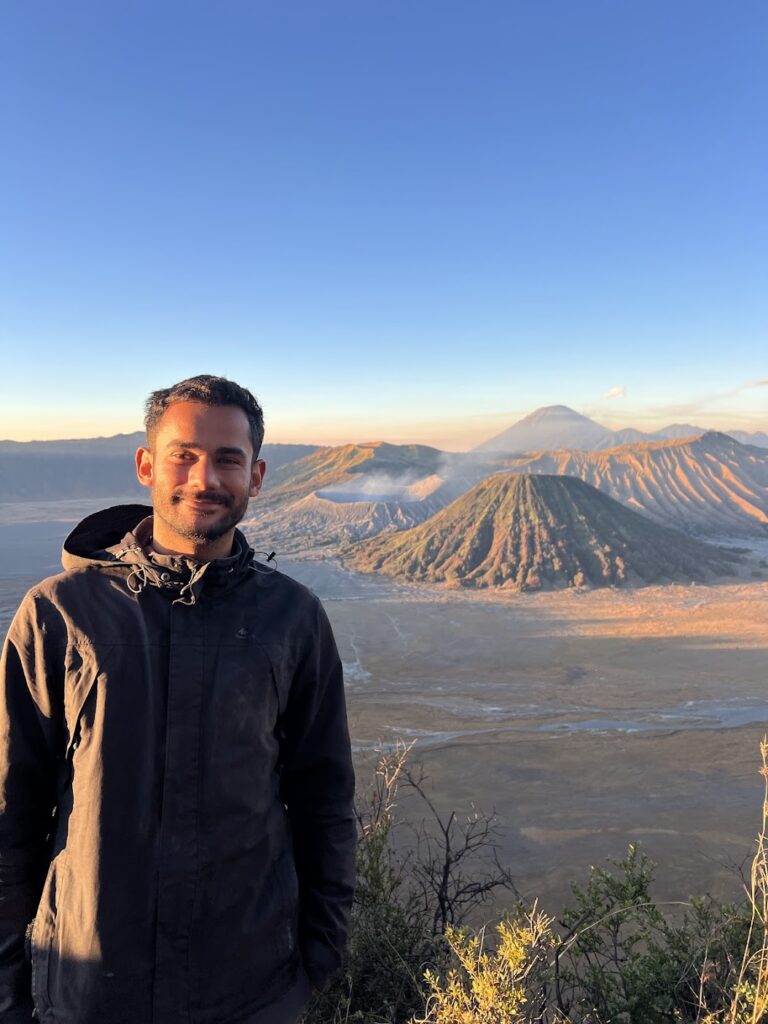
How to Get to Cemoro Lawang
Cemoro Lawang is the closest village to Mount Bromo and your base for exploring the area. To get there, you must first get to Probolinggo, your transit hub, by train or bus from several places, which you can easily find on 12GoAsia:
- Banyuwangi (if you’re coming from Ijen)
- Malang
- Surabaya (the closest major city and airport)
- Even from Yogyakarta, like we did
Once in Probolinggo, you’ll need to find a shared minivan (bemos) to Cemoro Lawang. They usually hang around the bus/train stations. Beware: they don’t have set schedules, so they wait until they fill a van or try to negotiate a price with those waiting. We negotiated 60k IDR ~ $3.70 per person, but it shouldn’t cost any more than $5. If you’re in a group, stand firm. You’ll also pay 35k IDR ~$2.15 to enter Cemoro Lawang village, which is a set fee.
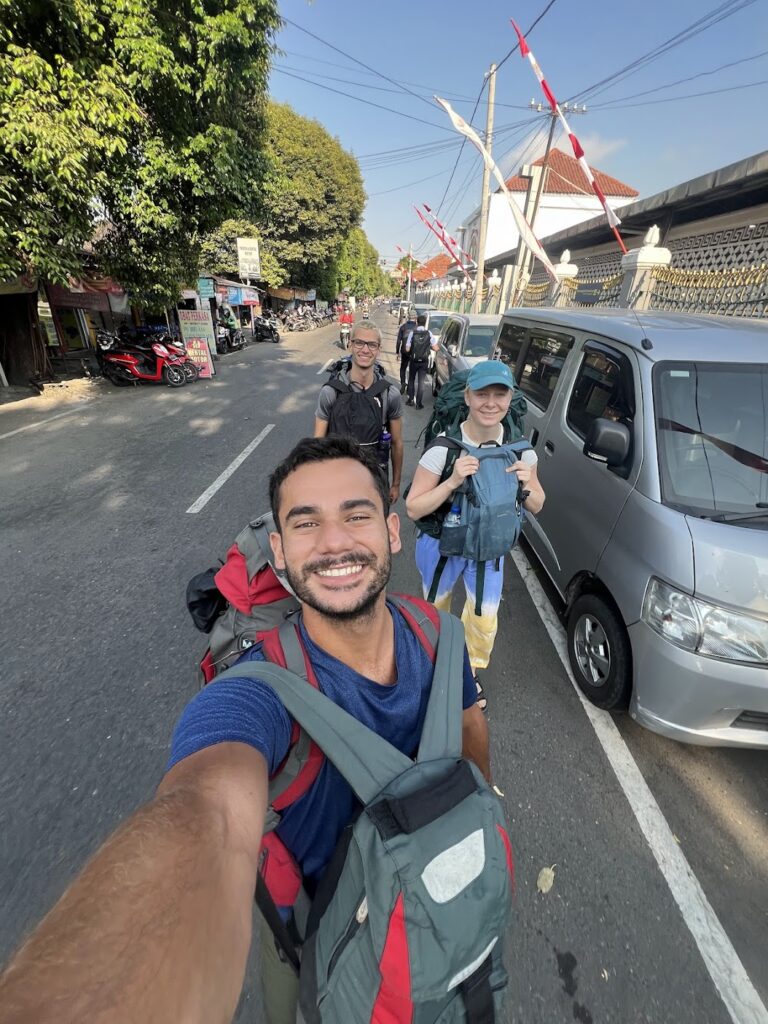
Where to Stay in Cemoro Lawang
Most guesthouses in Cemoro Lawang are extremely basic. Think: cold showers, questionable mattresses, and no insulation against the chilly mountain air. But it’s just one or two nights, and you’re here for the sunrise, not a luxury retreat.
We stayed at Tengger Indah Bromo Homestay. It was… fine. Affordable and walkable to the trailheads, but don’t expect much. If you’re particular about comfort, book early and look for something with good reviews on Agoda or Booking.com. Make sure to book right in town, or you will end up having to pay extra for transport to get you to the trail for sunrise.
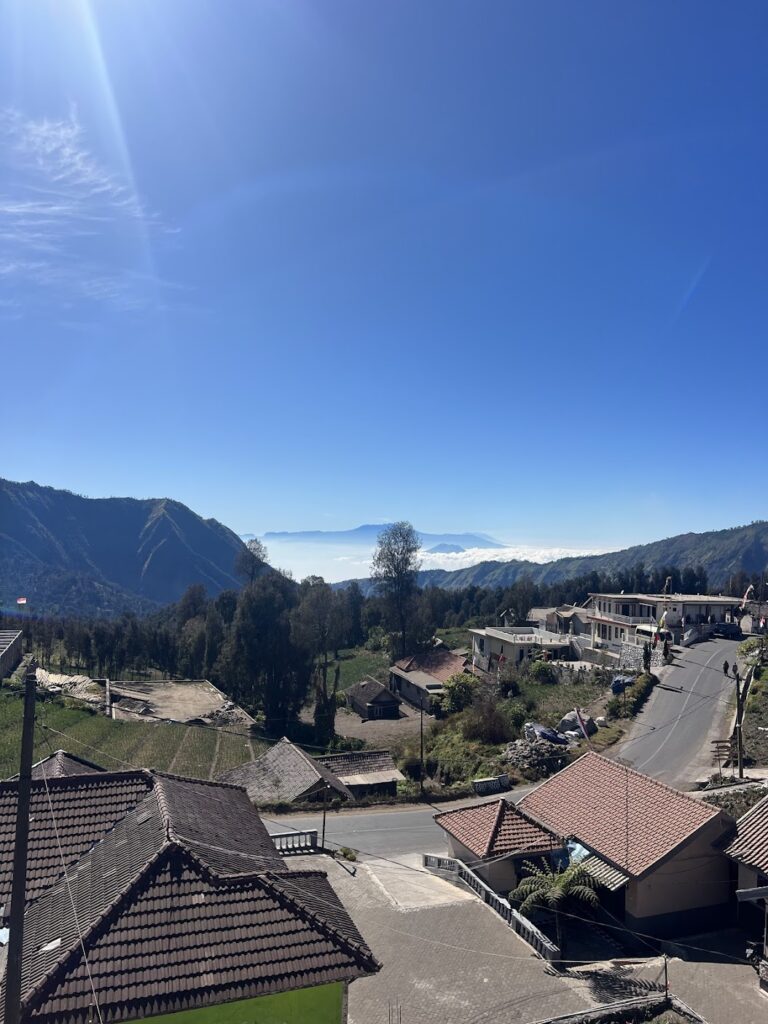
How long to stay in Cemoro Lawang?
Because of the inconvenient bemo “schedule”, you probably you will likely have to stay 2 nights in Cemoro Lawang – one before the hiking day and one after. The only way to avoid staying two nights is if:
- You do the hike to the volcano on the day of your arrival, that is, if you don’t arrive too late. Hike to the viewpoint for sunrise. Leave right after.
- Arrange private transport to take you after you finish the hike. This may be a great option, but it won’t be easy to find something cheap.
- Visit both the viewpoint and the volcano early morning, though it defeats the purpose of doing it yourself as it would be rushed and crowded.
- Skip hiking to the volcano and just visit the viewpoint. Highly don’t recommend. If you came all the way here, you want to see it all, right?
Sunrise Hike to King Kong Hill
This is the main event. Most tours head to King Kong Hill (or the nearby Penanjakan Viewpoint) by jeep around 3:30–4:00 a.m. But as an independent traveler, you can leave a bit later and hike it yourself.
We started at 4:30 a.m. and followed the road out of Cemoro Lawang for a couple of kilometers and reached the viewpoint just in time. Here’s the trick: don’t stop at the crowded main viewing platform. Continue walking just past it and you’ll find quieter spots with even better views. We had our own little area to watch the sun rise over the volcanoes. Bromo smoldering in the foreground, with massive Mount Semeru puffing smoke in the distance. Unreal.
Bring a headlamp, wear layers (it’s cold), and don’t forget snacks or water. There are warungs selling instant noodles and coffee at the top if you need a warm-up.
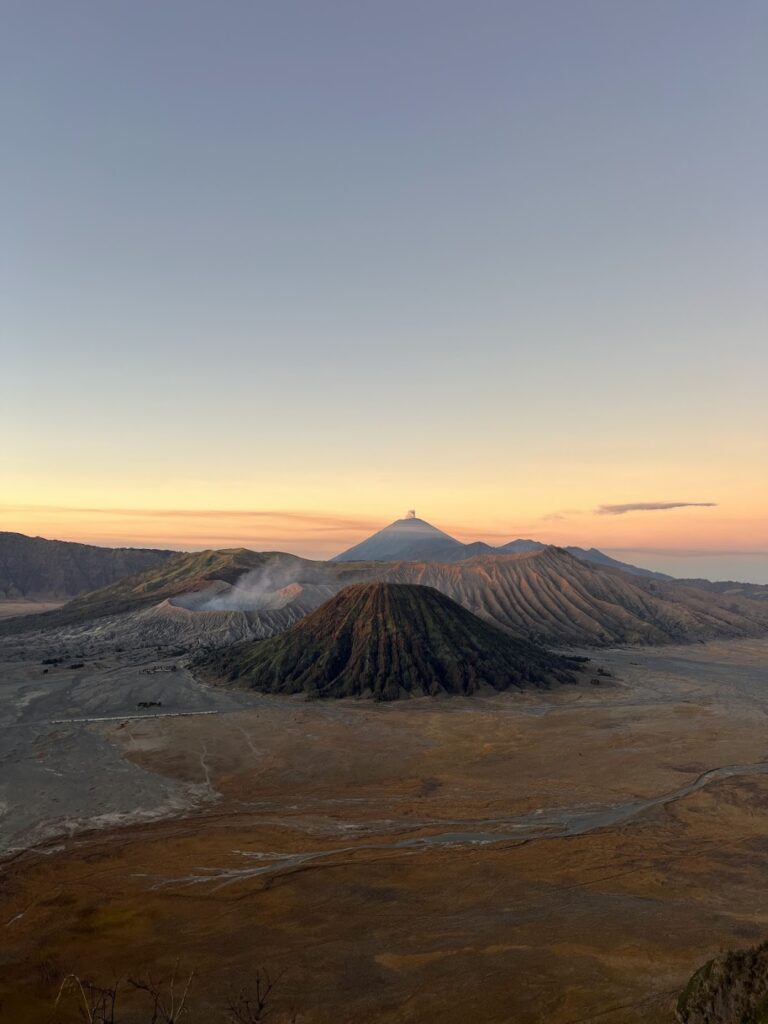
Hiking in the National Park (Bromo and Batok)
After sunrise, don’t rush straight to Mount Bromo. Tour groups flood the crater between 6:30 and 8:30 a.m. Instead, we grabbed breakfast and took a nap to wait them out.
By mid-morning, we walked down into the national park. Now, unless you want to pay 220k IDR ~ 13.50 USD or even more on weekends, pay attention. You need to head to the Cemara Indah Hotel in town, right beside it, where there is a path that leads right down to the volcano area, completely free. We aren’t sure if it’s fully allowed, but we saw local guides walking along here, and no one said it wasn’t.
Once on the Sea of Sand, cross the ashy plains toward Mount Bromo. You’ll see the famous staircase straight up the side. Climb it, peer over the edge, and breathe in the sulfur (literally). There’s no fence, so be careful, but the view into the crater is wild.
Feeling adventurous? Climb Mount Batok, the beautiful green cone next to Bromo. It’s steep and very dusty, but most people skip it, so you’ll probably have it to yourself. Just be prepared to get dirty.
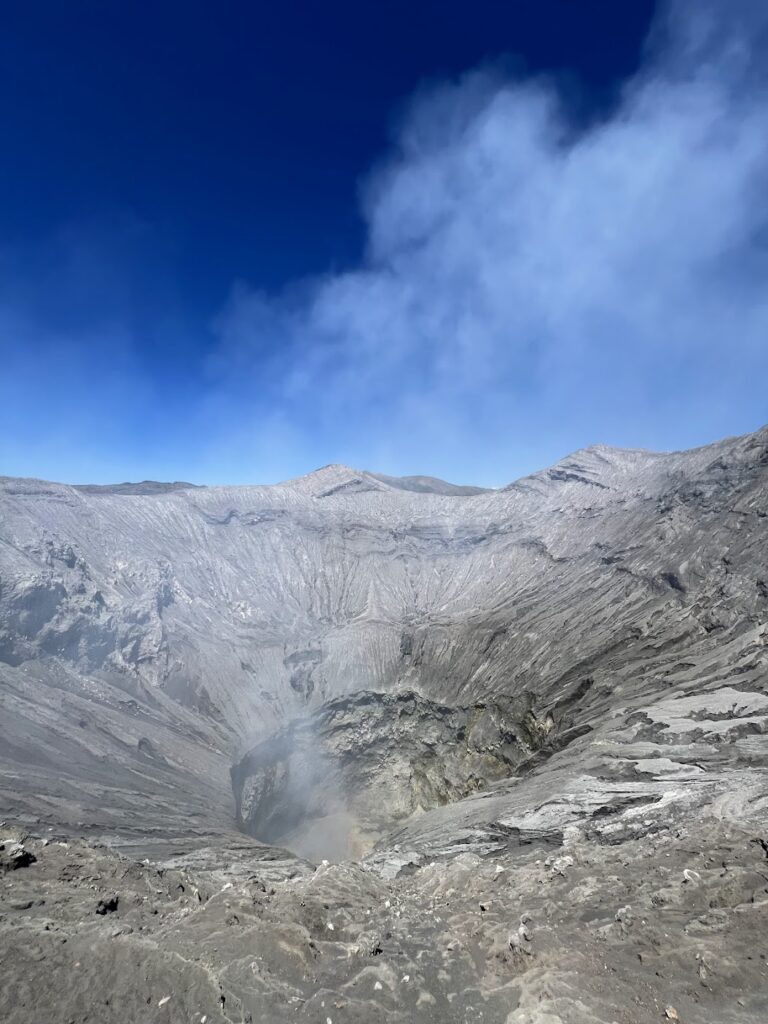
Leaving Cemoro Lawang
To get out, you’ll need to return to Probolinggo the same way you came. It’s a bit annoying because we saw that a grab split between three people would actually be cheaper and would leave right away, but whenever we ordered one, they would end up canceling on us. We found out there is a traffic mafia in town, and so the bemos are the only way out. The shared vans leave in the morning. Again, they won’t go unless there are enough people, so we had to wait hours before being able to leave.
From Probolinggo, you can continue your Java journey:
- Malang for waterfalls and rice terraces
- Surabaya for a flight
- Yogyakarta to the West
- Bali to the East
We headed to Malang next, and I highly recommend it.
Cost Breakdown to visit Bromo
The following is a cost breakdown of all expenses for this trip, which are typically included in the cost of a tour.
|
Item |
Cost (IDR) |
|---|---|
|
Bus from Malang to Probolinggo |
50k |
|
Bemo from Probolinggo to Malang |
60k |
|
Entrance to Cemoro Lawang |
35k |
|
Hotel |
150k |
|
Bemo back to Probolinggo |
60k |
|
Bus back to Malang |
50k |
|
Food |
100k |
The total cost for the trip is about 500k, which is about how much it costs for the tour. However, that is assuming you don’t pay for accommodation the night of your tour. You also get to experience the volcano without the crowds and take your time. On the other hand, doing it without a tour means you don’t get to ride in a jeep across the base of the volcano.
Sound Like Too Much Work?
If all this sounds like too much effort, you can still see Bromo with a tour from Malang, Surabaya, or even Bali. It’s not the worst thing in the world, but you’ll be on a tight schedule with big groups.
If you want to see more of what Java has to offer, make sure to check out my full Java route itinerary here.




